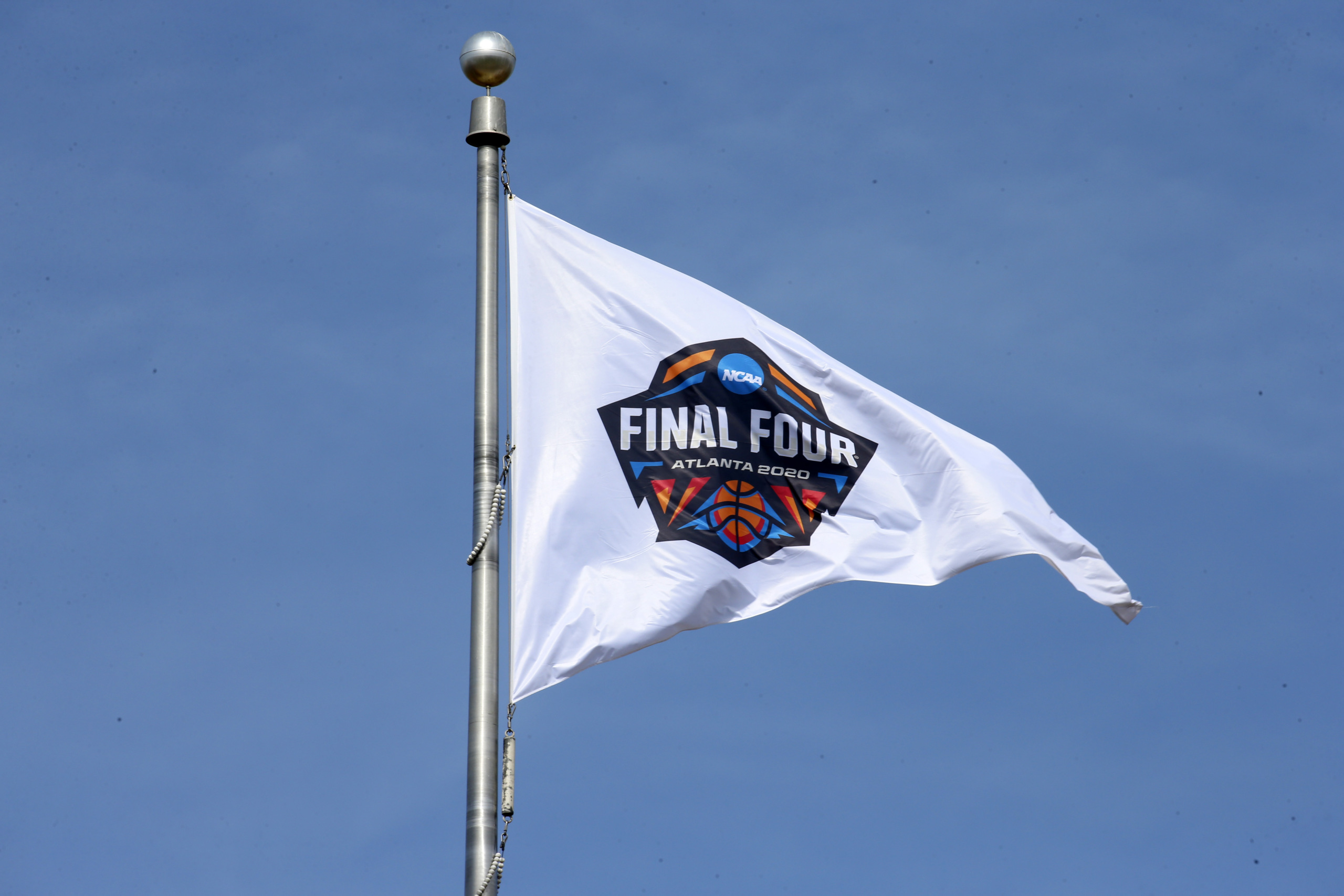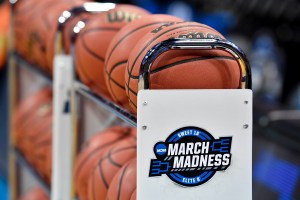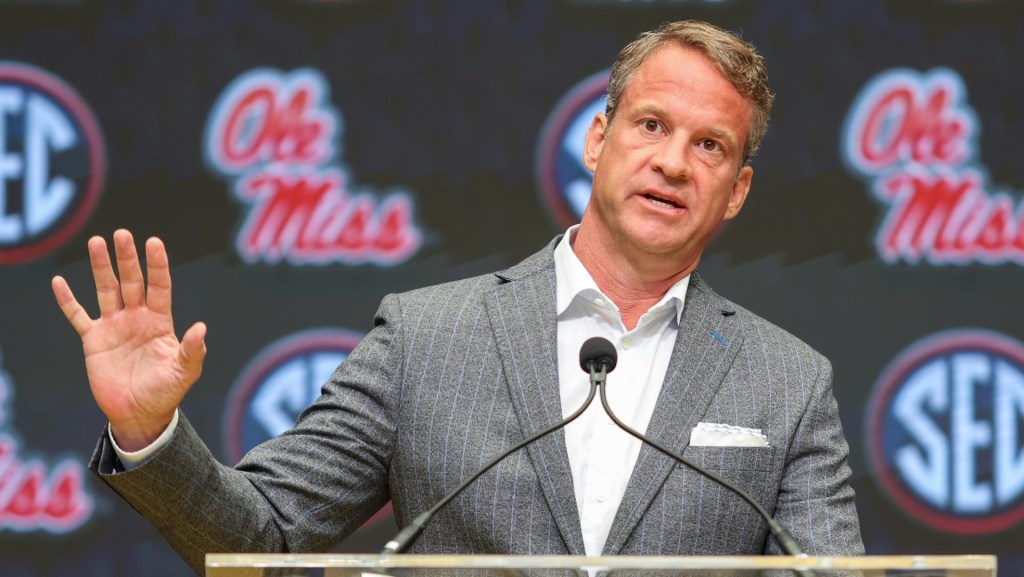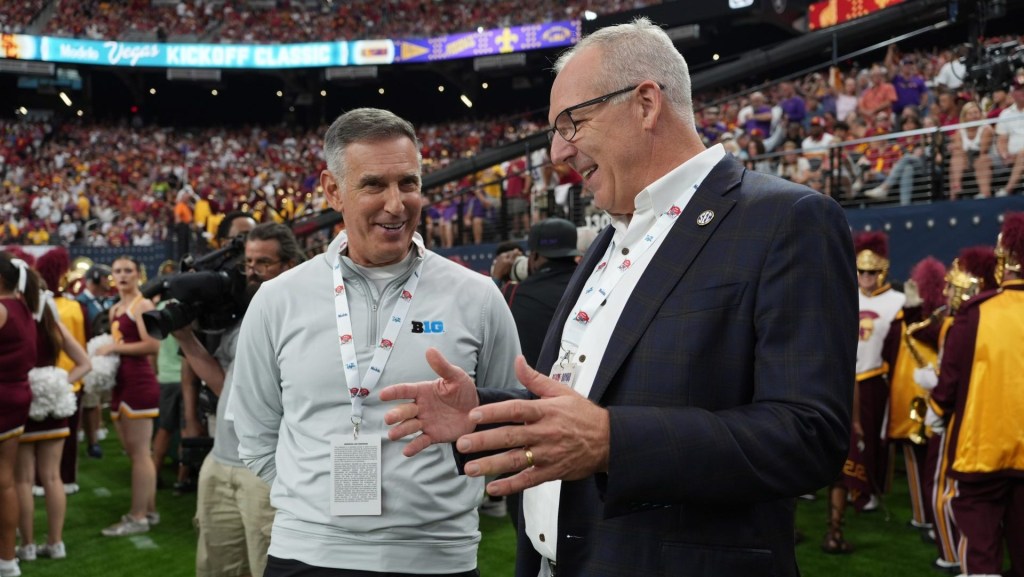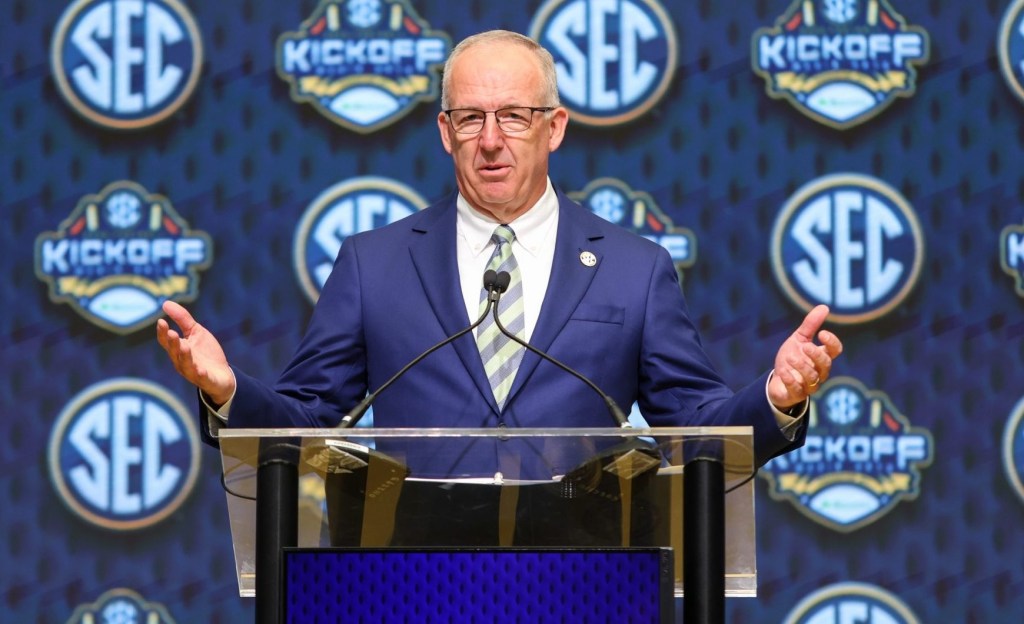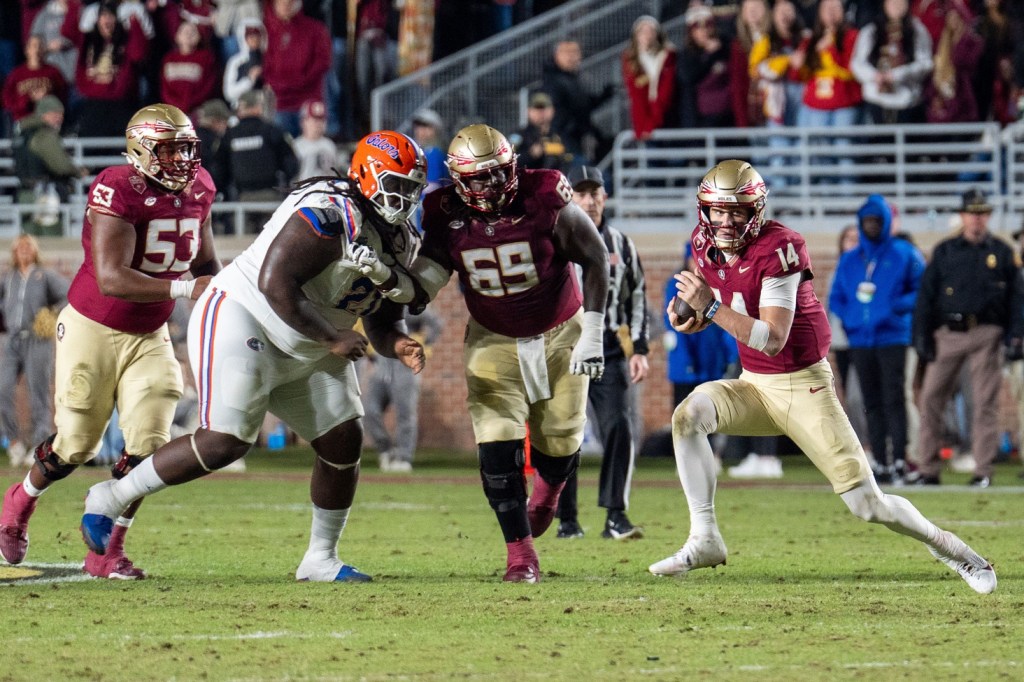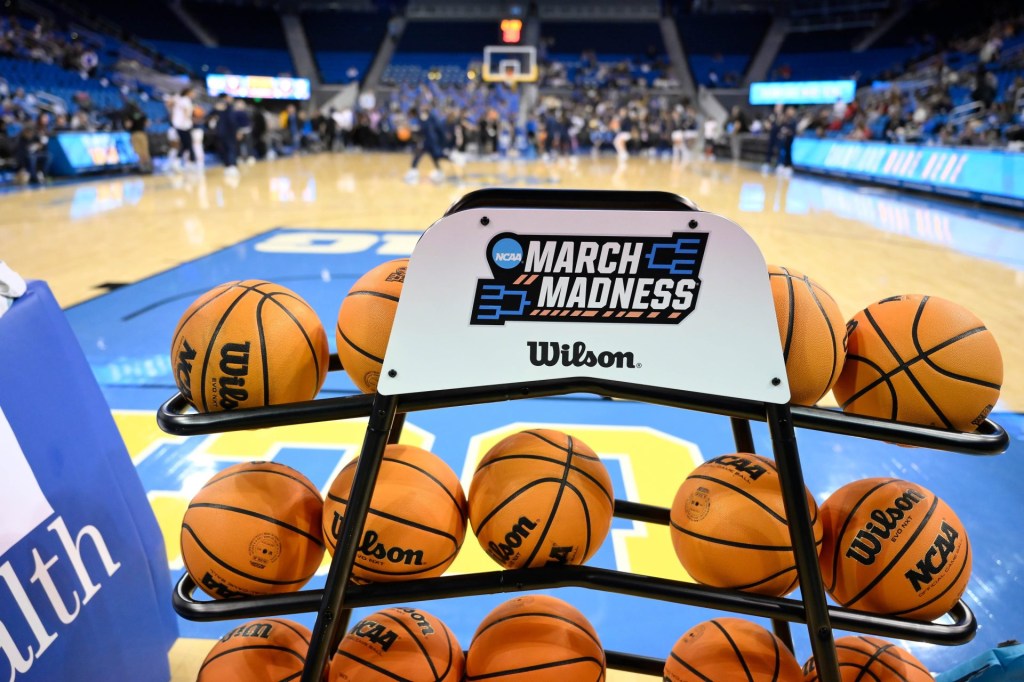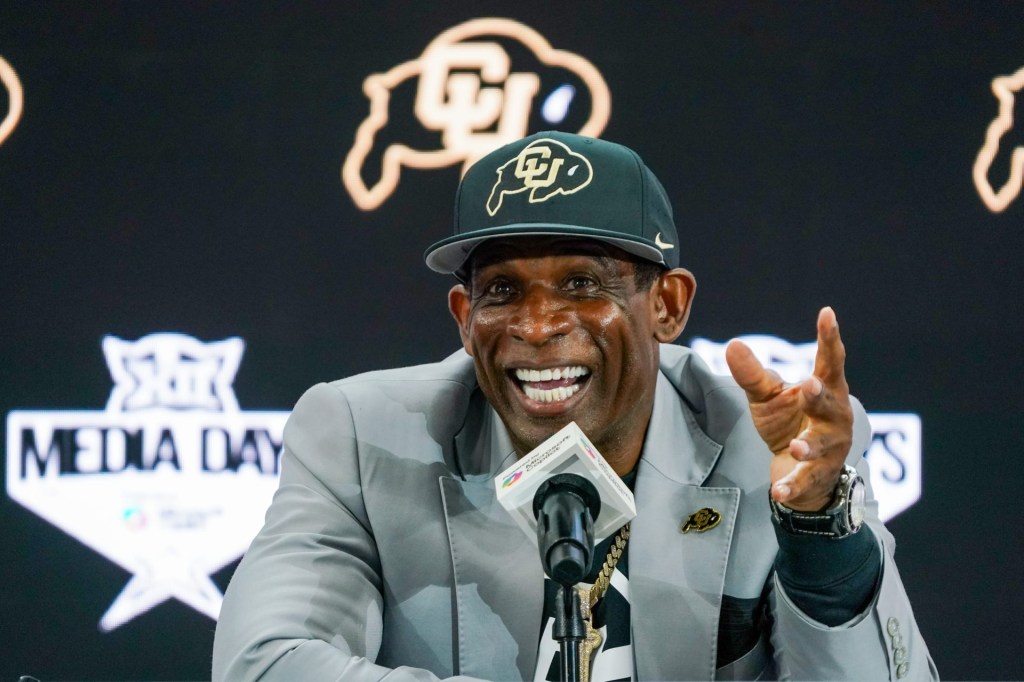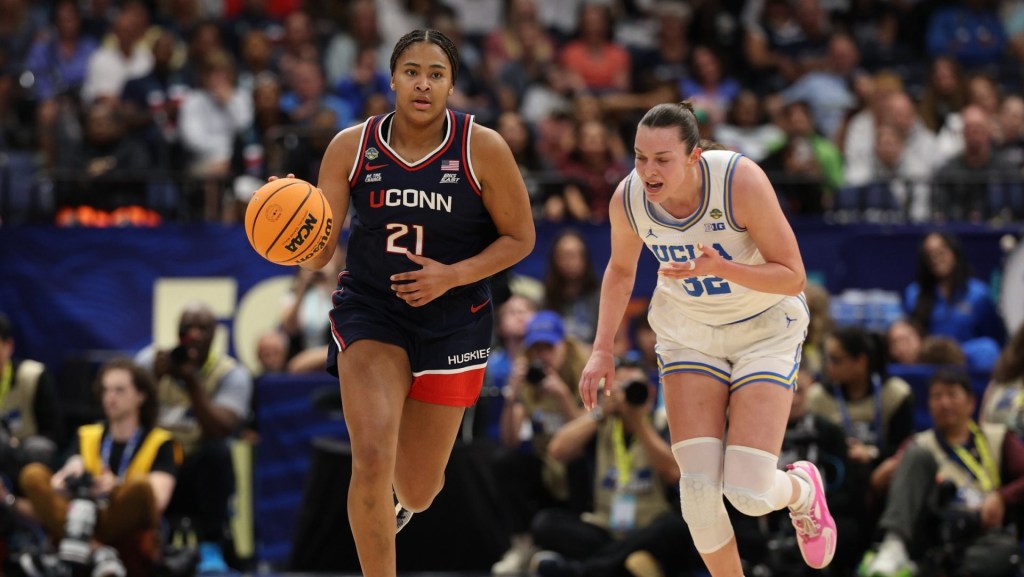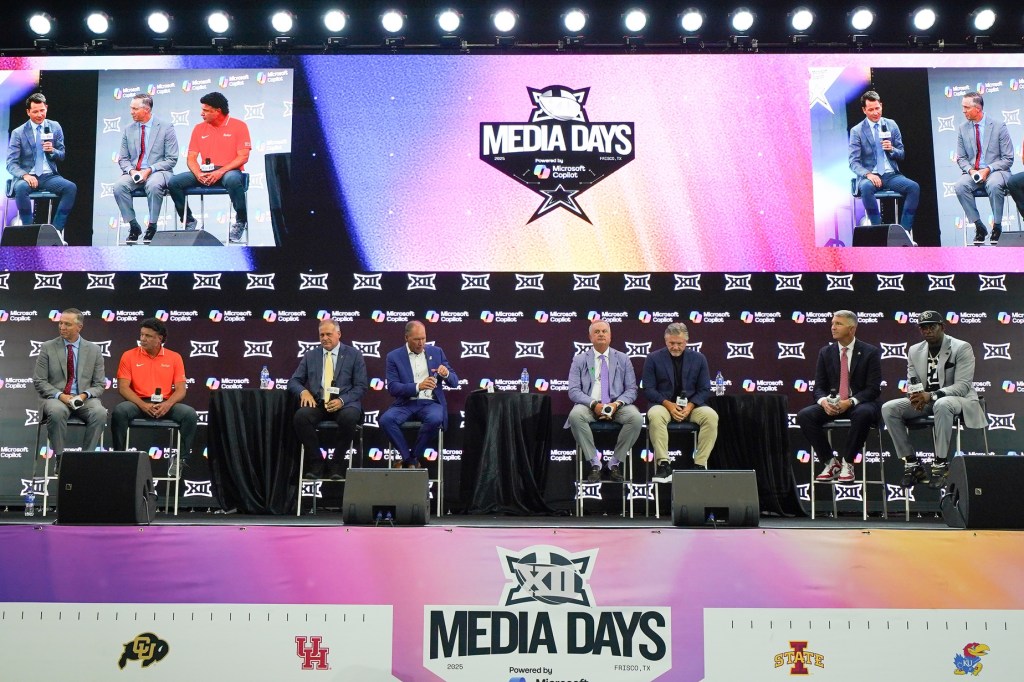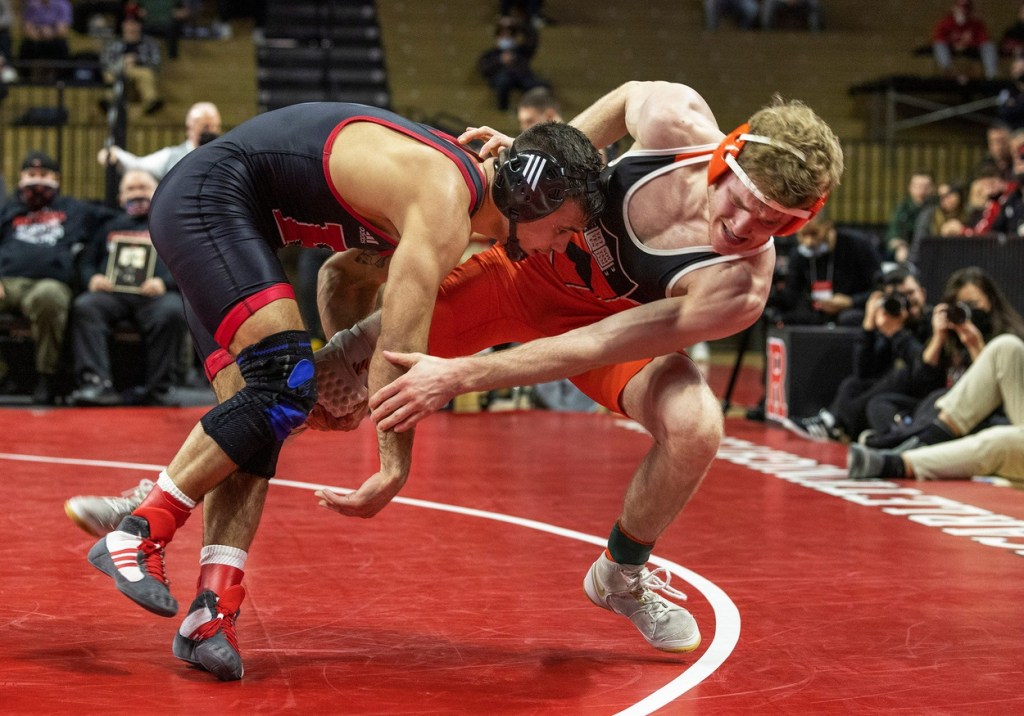Two college basketball reporting veterans, Rob Dauster and Jeff Goodman, have launched a new men’s basketball podcast network called The Field of 68.
From team-by-team analysis by former players and coaches to long-form storytelling, the network will look to fill what Dauster sees as a gap in hyper-local college basketball coverage for rabid fans. The network will include more than a dozen team-specific podcasts, as well as feature-oriented podcasts, and will include insiders like former Nebraska men’s coach Tim Miles and former Villanova forward Jason Fraser.
Though content will focus initially on men’s college basketball, Dauster and Goodman hope to grow their inventory to women’s college basketball, and college football.
Dauster spoke with Front Office Sports about how the podcast network came together, the void it’s filling in college basketball reporting, and how Dauster hopes the network will expand.
This interview has been lightly edited and condensed.
Front Office Sports: How did you come up with the idea for this network, and what has it been like building it from scratch?
Rob Dauster: August 3rd — I used to work at NBC for approximately 12 years, and on August 3rd they had their round of layoffs. I was one of the people who got swept up. I’ve been covering college basketball for like a decade, and looking for the last couple years to try to find a way to break out a little bit. NBC doesn’t have any college basketball broadcasting rights, so they don’t have as much of an incentive to invest in covering the sport as some other places. So I was trying to find something else to do. I’ve always wanted to get into the podcasting space. … When it happened, it was kind of like well, now’s the change to do it. I have some time on my hands, I have something I’ve got to figure out. I got to find a way to make a little bit of money, in a time when nobody’s really hiring.
So, I’ve known Jeff for years and years and years now. And we’ve done a little bit of work together before. We were on a TV show, he works for Stadium, and we did a weekly TV show during February and March of last year before COVID shut that down.
We just started bouncing ideas off of each other, trying to figure out a way to start something where, I can own it, and he could have something of his own instead of having to rely on being employed by other people, especially in an era where I don’t know if I’m going to be able to find another job covering college basketball. So that’s just kind of where it came from. We had a couple of different iterations of how we wanted it to look and finally set it on this idea that Jeff has a lot of great relationships in basketball, spanning all different levels, all different ages. He’s been doing this for like, 20 years, 25 years. So we kind of just tapped into the relationships that he has with people and found the right names to run some of these podcasts, and, you know, here we are.
FOS: What do you think is lacking in college basketball coverage across the board that you think that your network is going to fill?
RD: So the biggest thing for me is that it feels like a lot of the college basketball coverage is specifically towards, like, NBA draft picks. Like, ‘which one of these guys is going to end up being the big star of the NBA?’ ‘Which one of these guys are going to get the most eyeballs that they think we should be talking about?’ I do think it’s a little bit of the trend that we’re seeing in sports media. In general, you tend to talk about the things that, from a national landscape. … Those are the things that are going to get more eyeballs, that are going to get more clicks, that are going to do better on SEO, all that kind of stuff. And, for college basketball, it tends to be pretty limited, right?
There’s a lot of towns, and a lot of states, where college basketball is king. And it just feels like it’s been overlooked. And what we wanted to do was find a way that we could provide some kind of high-level insight, and high-level analysis from people that actually played the game for these teams, and that actually put on a Kansas jersey and played in Phog Allen Fieldhouse. That put on an Indiana jersey and played in Assembly Hall for Bobby Knight. And find a way to allow this to kind of, not just bring the inside analysis that they had as former players, people that really know the game, but people that can have the conversations with the stars, and the former players, and the former coaches, and the people that those fan bases care the most about.
So that’s just kind of the way that I saw, I feel like the die-hard fanbases really want quality content to consume. And you’re not getting it as much at the national level when you’re talking to some of these hyper-local teams, and hyper-local markets. So that’s really what we want to tap into. Cause look, we know the passion’s there, we see those student sections, we see those arenas — college basketball environments are some of the craziest environments in American sports. So we want to find a way to give those passionate fans what they want to hear.
FOS: I do believe that this is an all-male staff, which I know is primarily because you got men’s basketball players. But I am wondering if you’re concerned about any backlash, with regards to an all-male staff?
RD: Definitely something that we had conversations about. When we initially started this, we were looking at doing just like beat writers. … We ran into some issues with exclusivity of contracts, and employers not wanting to give up podcasting rights, and then things along those lines.
And I think we had, of like a 15 program, we’d get four or five women on the list of people that we were going to try to target. But once we went toward the former-player route, it just kind of, well, there’s not much that we can do. We’re starting with men’s college basketball. And if we’re doing all former players … we ran into a little bit of a wall. But that’s something we thought about, it’s definitely something we are aware of what that looks like. But it felt a little bit like circumstance.
FOS: With regards to the national podcast and then some of the other more feature-y podcasts, I’m curious as to the process of putting that together, how you decided what themes you thought would be the most interesting?
RD: The teams that we went after were — we started with the biggest programs. We gotta get Kentucky. Gotta get North Carolina. Gotta get Kansas. Gotta get Indiana. And then we said, well, who’s going to be awesome this year? So there’s pretty much a consensus top three college basketball leaders.
And then from there, some of these names kind of fell into our lap. … So in terms of picking teams, some of it was kind of targeted based off of what the fan bases are, and who can get the most listens. Some of it was based off of whose going to be really really good that we’re watching. Some of it was just kind of happenstance.
For the other pods, we are still in the process of recruiting people. … Specifically the storytelling one. … Both of us can report and write something out about it, but neither of us have any experience doing the — its very different to report out a story for like a 2500 word magazine feature vs. doing something that would be like a six-part 30-minute episode podcast. That’s like three hours worth of content. We’re trying to be able to find people that have more experience than us in that market. If you’re going to do that, you’ve got to be able to do it well.
FOS: And so looking through this podcast list, I’m particularly interested if you could give me some of the details about what the “Coach’s Wife” podcast is going to look like, why you think that that would be an interesting angle, and how it’s going to look?
RD: So Jeff was like, it would be awesome if we just had a coach’s wife on the podcast talking about what it’s like playing that role. Coaches are on the road like 150 days a year either recruiting or playing road games or whatever it is. They work a lot of hours. You have these hyper-intense basketball games … it’s a different life than what I think most people assume than a nine-to-five.
FOS: And, of course I have to ask — first lady, first husband. So, what happens if a coach has a husband? Would you change the name of the podcast?
RD: Honestly, it was not even something that crossed my mind. But yeah, that would definitely be something that we have to figure out. What’s the saying, cross that bridge when we get to it?
FOS: I would love if you could give some more detail about where you see the network going, in the next one year, three years, five years?
RD: So hopefully, by the end of the year, we turn it into something that’s profitable making enough advertising so that everybody can make a little money off it. … We have a lot of advertisers that are interested. We have a lot of advertisers that want to be able to have some kind of data that someone will get before they can invest their money. Which is completely understandable, but it just turns into … well, okay, we’re taking a risk there … we’re trying to find a way to make it work. And I’m positive that it will.
Our goal for year two and year three is to just start expanding. … Maybe get the top 60 programs in college basketball and make sure all of them have a podcast. Have a national women’s basketball podcast. Go and find someone that can do UConn women, and Tennessee women, and Baylor women, and Notre Dame women. Expand into college football. … Eventually, we want to be able to maybe flip the whole business model of coaches’ radio shows. Instead of having a coach’s radio show, why don’t they have a podcast on our network? Maybe when the name image likeness thing changes, why can’t we create a platform for some of these athletes to monetize their name, and monetize their personality, and monetize their platform. So there’s a lot of ways to make this grow.
FOS: Given both your long resume, covering college basketball and Jeff’s long resume, I’m wondering what advice you have for young reporters hoping to get into the college basketball space?
RD: Be ready to work. I mean, that’s really what it comes down to.
